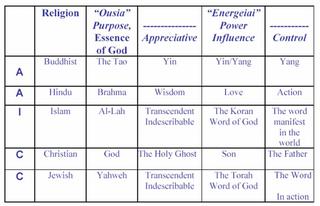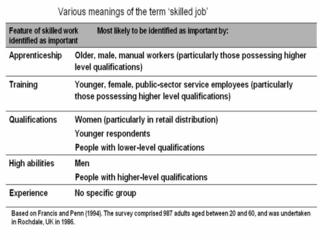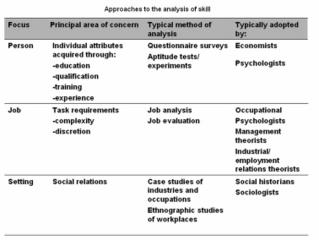Of course, this question strikes several times to me from my friends when we used to talk about our past life. However, I tried to shirk such a question for long time, today I am trying to clarify to them about my thoughts and my life style. Yes, I am single but it doesn’t mean that I am lonely, miserable and drifter. Of course, I need somebody whom I can trust and share my thoughts but it doesn’t mean that I should be committed to somebody or should have girl friend whom I can share my thoughts. I can remember one of my friend who is separated and now single in the age of 55 years and still searching somebody whose life moves at the craze of every beautiful female. He goes every Friday and Saturday night out, hanging around the female and asks for dating who choose to do so. When I see such a behaviour of men then I started to imagine and ponder in this matter that should I have to change my status into COMMITTED? However, I can't simply discard myself with a 'single' status. Of course, there is a difference between someone 'single and desperately looking for' and someone 'single by choice'. The crucial question arise how do I change my status if I don’t have whom I looking for?
Yes, I have dream and she is more beautiful than an angel. Then why don’t I commit to my dream? I don’t want to commit for any alluring beauty of female. How do I trust a female whom I always endeavour to realize? How do I trust her amiable face with elusive smile that made me to fascinate towards her? I do believe that commitment to a girl makes our commitment for other things stronger and perfect. Because such a commitment makes us feel responsible. We wouldn't want to hurt our prospects, would we? Commitment to an amiable face with elusive smile and taunts will get us a fleeting material pleasure, but that will soon fade away. I should rather commit to a girl who reciprocates what I stand for, who complements me, and gets complemented in return. I think it is necessary for everyone to understand the other more deeply and to actually "feel" the other person in us. These needs to be a constant flow of love, trust and commitment to keep it smooth. It is a happy and positive emotion after all (the emotion of committing someone) so it is hard to understand why there is a hesitation to express?
Obviously, it is human nature that every opposite sex attracts each other so I was. Every men dream to share his thoughts, pain and everything to her whom he want to commit. But if she takes me in different way that I am coward and manoeuvre to face problem, then what can I say to her? I can delineate myself that I am a soft approach person who doesn’t want to dictate anybody “I like this and I don’t like this”. It is more of an occasional desire that other feels so I am feeling today, like I have to pander to her. But after a while of not hearing anything from her side, the question did come up in my mind again and again - if she is feeling bizarre about me, why won't she say about it? That in turn gradually led to me in doubts about the sincerity of the emotion about her and found that may be she started snubbing and humiliating me. I tried to be honest to her and told her everything about me. May be this took me far from her. I tried to explain her but she didn’t give me a chance. It made me embarrassed and started asking myself: What I have done to her that she despises me? When I didn’t have contemplation about her, at that time I was alone but I wasn’t that much lonely. Every success is based on commitment but my dreams of commitment altered without any reason.
Now I have to compromise my dreams and move towards the success. I have a dream to do something in this life which I have committed. I think a person can commit only one thing at a time to achieve something “success”. I shouldn’t barter this valuable time just mourning which I didn’t achieve. I should try to achieve my dreams which I used to see that I want to something. I do believe in fate as well so I am pretty sure that my fate will not be cruel to me. I can only put effort and I am pretty sure that success will be decided by my fate. So, I don’t want to comformise with this commitment to anybody. Nothing is important and valuable than my childhood dream.
Last but not the least, I would always want to commit my life to my dreams, which indeed I have. But yes, in some corner, in some hide-out, there does linger a dream in which I am committed to someone inwardly beautiful. Someone I would want to spend my every moment of life with her, someone whose presence can be comforting enough (and my presence for her) for me to accomplish my other commitments in a better manner than I would have to without her.
Yes, I have dream and she is more beautiful than an angel. Then why don’t I commit to my dream? I don’t want to commit for any alluring beauty of female. How do I trust a female whom I always endeavour to realize? How do I trust her amiable face with elusive smile that made me to fascinate towards her? I do believe that commitment to a girl makes our commitment for other things stronger and perfect. Because such a commitment makes us feel responsible. We wouldn't want to hurt our prospects, would we? Commitment to an amiable face with elusive smile and taunts will get us a fleeting material pleasure, but that will soon fade away. I should rather commit to a girl who reciprocates what I stand for, who complements me, and gets complemented in return. I think it is necessary for everyone to understand the other more deeply and to actually "feel" the other person in us. These needs to be a constant flow of love, trust and commitment to keep it smooth. It is a happy and positive emotion after all (the emotion of committing someone) so it is hard to understand why there is a hesitation to express?
Obviously, it is human nature that every opposite sex attracts each other so I was. Every men dream to share his thoughts, pain and everything to her whom he want to commit. But if she takes me in different way that I am coward and manoeuvre to face problem, then what can I say to her? I can delineate myself that I am a soft approach person who doesn’t want to dictate anybody “I like this and I don’t like this”. It is more of an occasional desire that other feels so I am feeling today, like I have to pander to her. But after a while of not hearing anything from her side, the question did come up in my mind again and again - if she is feeling bizarre about me, why won't she say about it? That in turn gradually led to me in doubts about the sincerity of the emotion about her and found that may be she started snubbing and humiliating me. I tried to be honest to her and told her everything about me. May be this took me far from her. I tried to explain her but she didn’t give me a chance. It made me embarrassed and started asking myself: What I have done to her that she despises me? When I didn’t have contemplation about her, at that time I was alone but I wasn’t that much lonely. Every success is based on commitment but my dreams of commitment altered without any reason.
Now I have to compromise my dreams and move towards the success. I have a dream to do something in this life which I have committed. I think a person can commit only one thing at a time to achieve something “success”. I shouldn’t barter this valuable time just mourning which I didn’t achieve. I should try to achieve my dreams which I used to see that I want to something. I do believe in fate as well so I am pretty sure that my fate will not be cruel to me. I can only put effort and I am pretty sure that success will be decided by my fate. So, I don’t want to comformise with this commitment to anybody. Nothing is important and valuable than my childhood dream.
Last but not the least, I would always want to commit my life to my dreams, which indeed I have. But yes, in some corner, in some hide-out, there does linger a dream in which I am committed to someone inwardly beautiful. Someone I would want to spend my every moment of life with her, someone whose presence can be comforting enough (and my presence for her) for me to accomplish my other commitments in a better manner than I would have to without her.



